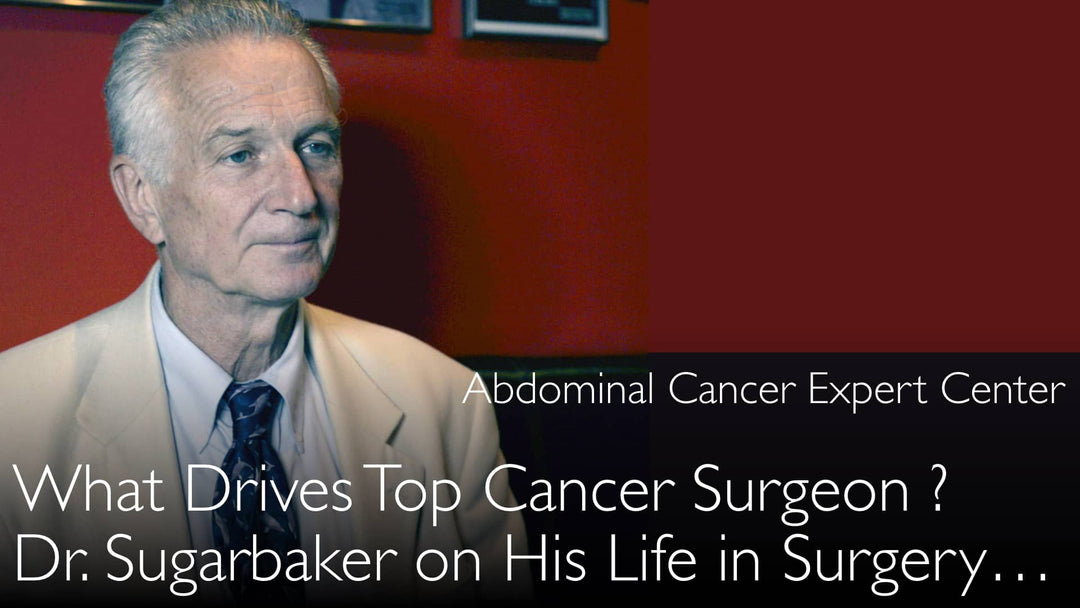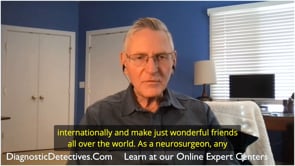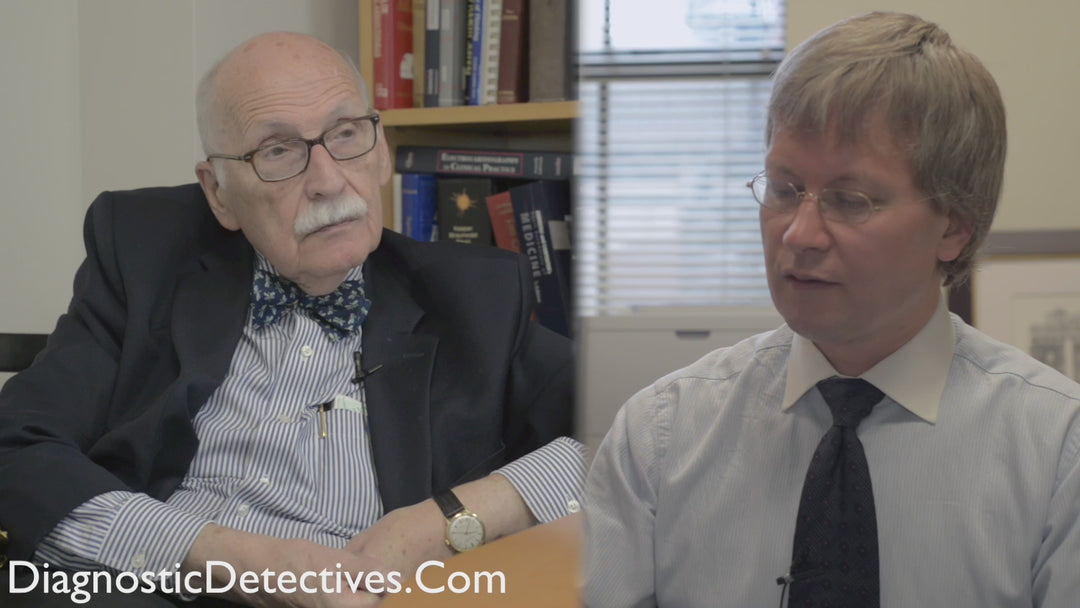Leading expert in peritoneal metastatic cancer treatment, Dr. Paul Sugarbaker, MD, explains the personal and professional motivations behind his groundbreaking surgical career. He shares how his upbringing with a surgical oncologist father and the mentorship of Harvard professors shaped his philosophy. Dr. Paul Sugarbaker, MD, emphasizes the core principle of treating one patient at a time to achieve superior clinical results. His dedication to careful patient evaluation ensures the best possible outcomes for complex abdominal cancers.
Motivation and Philosophy of a Pioneering Cancer Surgeon
Jump To Section
- Surgical Upbringing and Early Influences
- The Philosophy of One Patient at a Time
- Careful Patient Evaluation Before Surgery
- Overcoming Resistance in Peritoneal Cancer Treatment
- The Human Element in Advancing Medicine
- Full Transcript
Surgical Upbringing and Early Influences
Dr. Paul Sugarbaker, MD, credits his father, a groundbreaking surgical oncologist, as a primary guiding force in his life. He began participating in surgical operations with his father even before attending medical school. This early exposure provided Dr. Sugarbaker with a unique perspective on what constitutes a high-quality surgical procedure. He developed an intuitive feeling for surgical outcomes that has stayed with him throughout his career.
The Philosophy of One Patient at a Time
A core tenet of Dr. Sugarbaker's practice is the concept of treating one patient at a time. This philosophy was instilled in him during his training at Harvard Medical School under Professor Dr. Frances Moore. Dr. Sugarbaker, MD, explains that the best method to care for a patient is to genuinely care for the patient. This approach, though less popular in modern high-volume practices, is fundamental to achieving superior results in medicine. Dr. Anton Titov, MD, notes that this motto was a hallmark of classical surgical training.
Careful Patient Evaluation Before Surgery
Dr. Paul Sugarbaker, MD, emphasizes the critical importance of meticulous patient evaluation prior to any major surgical intervention. In his senior position, he maintains the luxury of evaluating every patient extremely carefully. This process ensures that patients have a real and good possibility of benefiting from the treatment. This careful selection is vital for procedures like cytoreductive surgery and HIPEC, which carry significant risk but offer a potential cure for peritoneal metastases.
Overcoming Resistance in Peritoneal Cancer Treatment
The career of Dr. Paul Sugarbaker, MD, is a story of perseverance against decades of resistance and skepticism. He pioneered the Sugarbaker Procedure for metastatic peritoneal cancer, a combination of cytoreductive surgery and Hyperthermic Intraperitoneal Chemotherapy (HIPEC). This innovative treatment for advanced abdominal cancers from colon, ovarian, and gastric primaries was initially met with hostility. His dedication to proving its efficacy has provided a curative option for many patients with stage 4 cancer.
The Human Element in Advancing Medicine
In a conversation with Dr. Anton Titov, MD, Dr. Paul Sugarbaker, MD, highlights that medicine's progress is driven by dedicated humans, not just technology. Physicians, nurses, and healthcare professionals are the main reason medicine moves forward. Dr. Sugarbaker’s life and career exemplify a profound dedication to patient well-being. This human element is the essential motivation behind innovation and provides the resilience needed when the going gets tough in a demanding surgical career.
Full Transcript
Dr. Anton Titov, MD: Dr. Sugarbaker, this is an opportunity to talk not only about the Sugarbaker Procedure. You and your colleagues have developed and pioneered peritoneal cancer treatment. Let’s talk about you, because it is a very important point.
In the modern age, the public starts to view medicine as a "technology play." Medicine is viewed as a collection of gadgets, algorithms, beeping sounds, and various technological developments. But we have to remember that it is humans who are dedicated to the lives of patients. Humans push medicine forward. Physicians, nurses, and additional healthcare professionals are the main reason medicine is progressing.
Your career and your life exemplify this dedication to the well-being of patients. I would like to ask you this question: what drives you in life? Maybe you can share a little bit about your upbringing, about your values and your dedication. What gets you going when the going gets tough?
Dr. Paul Sugarbaker, MD: That's a difficult question to try and figure yourself out. Why you do things? Why you don't do other things? My father was a surgical oncologist. I used to operate with him when I was in medical school. I participated in surgical operations with my father even before I went to medical school. In some respects, I was brought up in the operating room.
I got a feeling for what was a really high-quality surgical procedure. I knew what didn't turn out well during the surgical operations. I began to develop a feeling for it.
Somehow, when you start very young with some things, you get a perspective on things that you otherwise wouldn't have. I got to credit my father, who was a really groundbreaking surgical oncologist trained at Memorial Hospital. My father was the founding member of the James Ewing Society (now it is the American Cancer Society). My father was definitely a guiding force in my life.
My professor at Harvard Medical School, Dr. Frances Moore, used to have this saying. He used to say to us: "The best method to care for a patient is to care for the patient." That is really very true. Your patient is a person who entrusted their life to you. Sometimes you are really concerned about your patient. Then you give them absolutely the best clinical result possible.
You do that one patient at a time. Then you are going to have a superior result in medicine. That "one patient at a time" concept is now not so popular. They would like us to see twenty patients in an afternoon session.
Dr. Anton Titov, MD: "One patient at a time" was a motto in your classical days of surgery training at the Peter Bent Brigham Hospital in Boston (now Brigham & Women's Hospital).
Dr. Paul Sugarbaker, MD: That's correct. That's correct. Perhaps that has lingered on throughout my career. Now I am in the senior position. I have the luxury of still evaluating every patient extremely carefully prior to surgery. I make sure that my patients have a real good chance. They have a real good possibility to benefit from treatment before we take the patient to the operating room for a procedure that could potentially cost them their lives.







